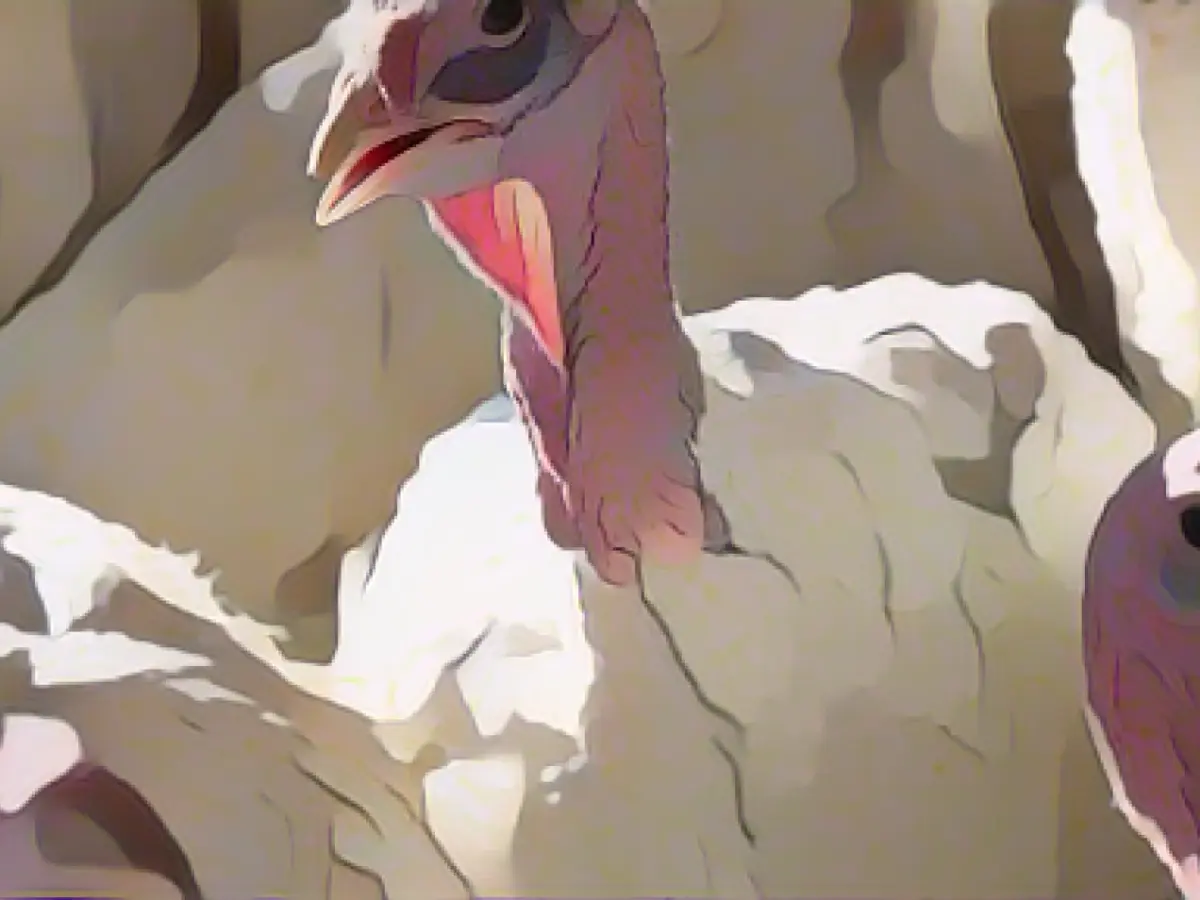Animal diseases - Avian flu detected on a farm in Emsland
Bird flu has broken out on a turkey fattening farm with around 18,000 animals in Lorup (Emsland district). It is the highly contagious form, the influenza A virus, as a district spokeswoman announced on Friday. All turkeys on the affected farm had to be killed.
The district established a protection zone within a radius of three kilometers around the affected farm. In this area, eleven commercial farms with 258,830 animals and 20 hobby farmers with 950 animals are affected, the spokeswoman added. In addition, a surveillance zone will be set up within a radius of ten kilometers around the outbreak farm. A total of 124 commercial farms with over 4.1 million animals and 85 hobby farmers with just under 1500 animals are located in this zone. All transportation of live poultry and eggs is prohibited within the protection zone and the surveillance zone.
Avian influenza has been appearing in Germany again and again for years; it is introduced and spread by wild birds. It can cause major economic damage - if a flock is infected with the highly contagious variant, all the animals there are usually killed.
Communication from the district
Lesen Sie auch:
- VfB with Guirassy/Undav duo against Werder
- Ahnen 2024 Chairwoman of the Conference of Finance Ministers
- Child transport survivor: difficult situation for Germany
- The detection of bird flu in Emsland signifies a potential threat to animal health in the District of Emsland and the surrounding Lower Saxony region, given its prevalence in wild birds and its ability to cause significant economic losses among agrarian communities.
- As a result of the bird flu outbreak in Lorup, Emsland has established a protection zone and a surveillance zone, affecting numerous commercial farms and hobby farmers in the area, thereby restricting live poultry and egg transportation within these zones.
- The highly contagious form of bird flu, the influenza A virus, poses a risk to the health of animals and humans in Emsland, as it can mutate and possibly lead to the emergence of new diseases, which could further escalate the challenges faced by animal health services and veterinary authorities.
- The avian flu outbreak highlights the importance of maintaining robust disease surveillance and prevention measures in not only animal agriculture but also in adjacent ecosystems, as wild birds and other animals serve as reservoirs for various viruses and pathogens that can pose threats to both ecosystems and human health.
Source: www.stern.de








